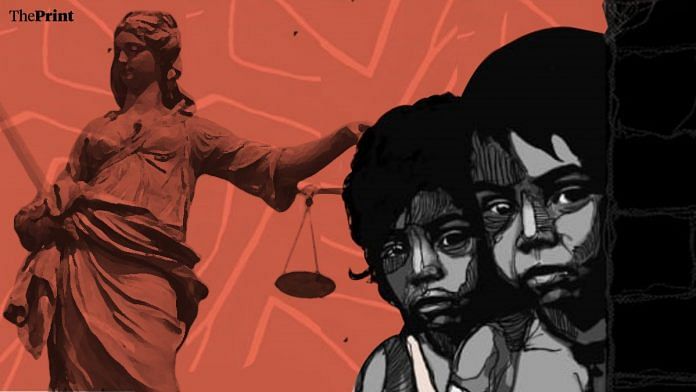New Delhi: The Pune Porsche accident, in which a 17-year-old allegedly killed two people while driving under the influence of alcohol, has brought renewed focus on the Juvenile Justice Act —the law that lays down a different procedure for offences involving minors.
While the teenager faces charges under the Indian Penal Code and Motor Vehicles Act, the JJ Act applies to the adults in this case.
The Pune Police have booked the minor’s businessman father and two employees of Club Blak, where the 17-year-old was allegedly served alcohol, under sections 75 and 77 of the Juvenile Justice Act, which deal with “cruelty” to a minor and providing them with intoxicating substances.
Here’s a breakdown of the two sections.
Also Read: Bar bills of Rs 68,000 & a 48-hour manhunt — what’s transpired in Pune Porsche accident case so far
Section 77: 7-yr prison for serving substances
Section 77 of the Act provides punishment for giving liquor, narcotic drugs, or any psychotropic substance to a minor. The only exception is for substances prescribed by a medical practitioner.
“Whoever gives, or causes to be given, to any child any intoxicating liquor or any narcotic drug or tobacco products or psychotropic substance, except on the order of a duly qualified medical practitioner, shall be punishable with rigorous imprisonment for a term which may extend to seven years and shall also be liable to a fine which may extend up to one lakh rupees,” the provision reads.
However, as noted by the Supreme Court in a 2016 case filed by child rights NGO Bachpan Bachao Andolan, implementing the stringent provisions under the JJ Act remains challenging.
The bench, which included now-Chief Justice of India DY Chandrachud, also emphasised the need for a standard operating procedure to enforce the exception related to medical substances.
Since then, police have occasionally invoked this clause against offenders. For example, after a surprise check in September, three pub managers in Bengaluru were booked for serving alcohol to minors.
However, according to legal records accessed by ThePrint, even in cases where police file proceedings, suspects often request bail, which courts routinely grant.
Section 75 — cruelty to a minor
Section 75 of the Juvenile Justice Act deals with the abandonment, abuse, assault, and neglect of a minor.
“Whoever, having the actual charge of, or control over, a child, assaults, abandons, abuses, exposes or wilfully neglects the child or causes or procures the child to be assaulted, abandoned, abused, exposed or neglected in a manner likely to cause such child unnecessary mental or physical suffering, shall be punishable with imprisonment for a term which may extend to three years or with fine of one lakh rupees or with both,” the clause says.
However, although the law puts the legal responsibility of such “cruelty” on anyone who either has “charge of” the child or is in “control of” a child, it also creates an exception where a biological parent has abandoned a child due to circumstances beyond their control.
“Provided that in case it is found that such abandonment of the child by the biological parents is due to circumstances beyond their control, it shall be presumed that such abandonment is not willful, and the penal provisions of this section shall not apply in such cases,” the exception reads.
This section is frequently used in cases in cases involving assault or corporal punishment at school.
For instance, last August in Uttar Pradesh, police invoked this section after a video went viral showing a teacher in Muzaffarnagar egging on her students to take turns slapping a seven-year-old Muslim boy in class.
The section was also invoked against a social science teacher in Tamil Nadu who caned her student last November for not turning in his homework.
Despite this, however, there are still some grey areas where the section is concerned. For instance, in September 2021, the Kerala High Court granted bail to a man who allegedly assaulted his grandson. This was because the grandfather stayed away from the boy and was therefore not in “control” or had the “charge” of the minor as the section required.
Also Read: Pune Porsche accident has clear message for Indians—if you’re powerful, law is optional



